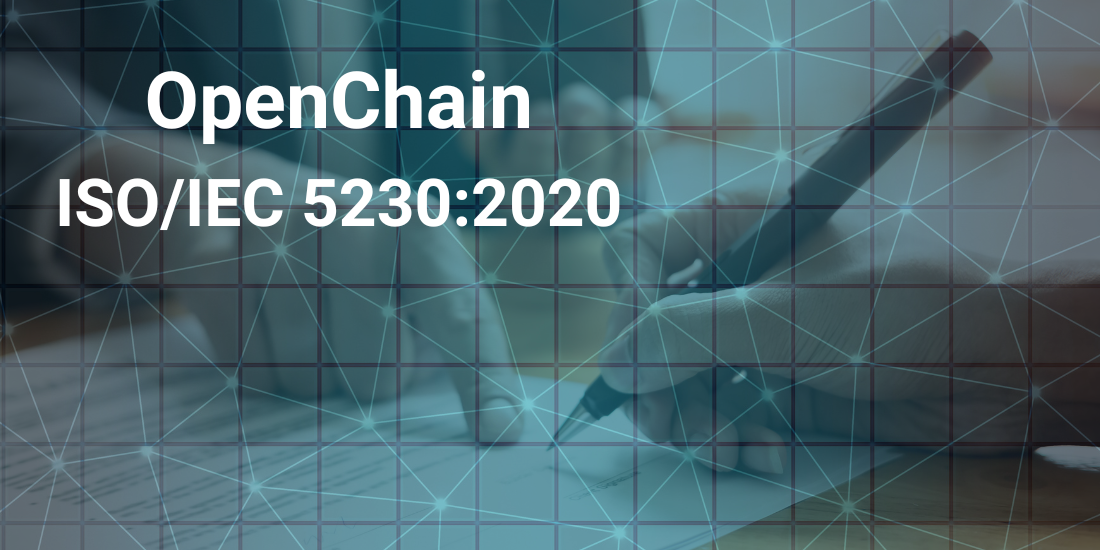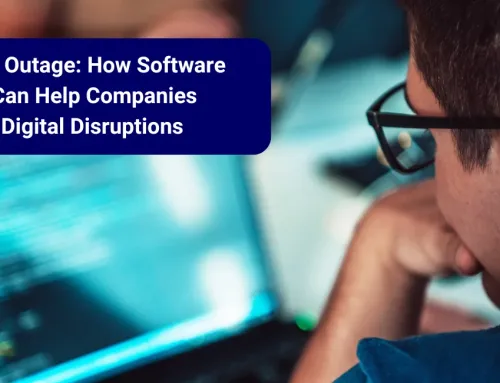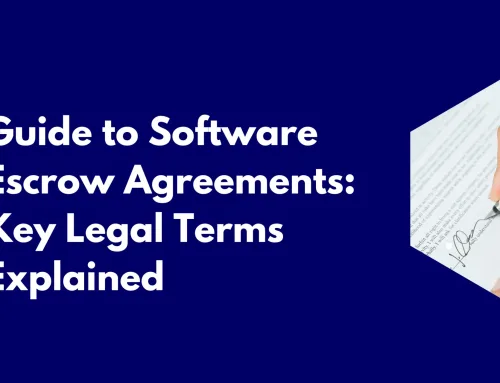Navigating Software Licence Contracts: OpenChain ISO 5230:2020
In the complex world of software licence contracts, legal representatives face multiple challenges in safeguarding intellectual property, ensuring compliance and mitigating risks. With the exponential rise in open-source software adoption, understanding and adhering to relevant standards have become paramount. Among these standards, ISO/IEC 5230:2020, also known as the OpenChain standard, stands out as a basis for effective open-source licence compliance.
This blog serves as a guide for legal specialists to understand more about the OpenChain standard, from its background to its importance, as well as understanding how including software escrow agreements into software licence contracts can offer additional protection for clients.
OpenChain Background
In 2013 the Linux Foundation started the OpenChain Project led by Shane Coughlan. The project sought to define an effective specification for open-source licence compliance throughout the software supply chain.
In December 2020, OpenChain was approved and published as an international standard: ISO/IEC 5230:2020, defining essential requirements for establishing robust open-source compliance programs. Embracing OpenChain principles instils trust and reliability among entities engaged in software exchange, fostering a conducive environment for collaboration and innovation.
Microsoft announced its conformance to the OpenChain ISO 5230 standard back in 2019. Many other organisations have also publicly announced OpenChain conformant programs including Arm, Cisco, Siemens and Uber.
The Importance of OpenChain ISO 5230:2020
Legal professionals carry significant influence in harnessing the benefits of ISO/IEC 5230:2020 across various domains:
- Mergers & Acquisitions (M&A) Transactions: This process assesses the risk associated with the organisation deriving from its software. OpenChain compliance accelerates this process by providing a structured framework for evaluating open-source software usage. By adhering to OpenChain principles, organisations streamline transactions, reduce friction and mitigate associated risks, thereby enhancing confidence among stakeholders.
- Procurement & Outsourced Development: ISO/IEC 5230:2020 serves as a crucial benchmark for evaluating suppliers’ adherence to open-source compliance practices. Entities conforming to this standard gain a competitive advantage by showcasing alignment with industry-best practices. Integrating OpenChain principles into procurement processes ensures transparency, minimises risks and fortifies contractual relationships with suppliers.
Advance Your Software Licence Contracts
OpenChain conformity offers a competitive edge in software procurement. When a company seeks a software solution through a request for proposal (RFP), OpenChain-conforming suppliers demonstrate efficient supply chain management, reducing risk. On top of that, their ability to provide an accurate Software Bill of Materials (SBoM) sets them apart. Equally, suppliers lacking this capability raise doubts about their software development processes, undermining trust in the supply chain. OpenChain is one of the benchmarks organisations can use to vet suppliers for supplying trustworthy solutions.
In assessing potential software vendors, organisations can:
- Evaluate open-source standards.
- Mitigate business risks by auditing third-party open-source licensing.
- Identify vulnerabilities in codebases to ensure adherence to standards.
- Audit code quality for maintainability.
- Utilise software escrow to ensure access and service continuity in case of supplier failure, reducing supply chain risks.
- Incorporate assessments and technical due diligence, including software escrow, in mergers and acquisitions.
In addition to embracing ISO/IEC 5230:2020 to ensure open-source compliance, legal representatives can further strengthen the resilience of software licence contracts by incorporating software escrow agreements.
Today more and more software licence contacts enforce a requirement for a software escrow agreement to be put in place. The idea behind a software escrow agreement is to protect the intellectual property (IP) interests of the software developer while protecting the long term usability of software for the client. These agreements instil confidence among stakeholders, mitigating risks associated with software dependencies and ensuring business continuity.
In addition to software escrow agreements, and to further minimise the risk of breaching open-source obligations, organisations are increasingly recognising the importance of open-source code audits conducted by trusted experts. These audits entail comprehensive assessments of the source code to ensure compliance with licensing requirements, identify potential vulnerabilities and mitigate legal risks.
By engaging trusted experts to conduct open-source code audits, clients of legal representatives can proactively address compliance issues, safeguard intellectual property and sustain the reliability of their software assets.
In Conclusion
In the complex landscape of software licence contracts, legal representatives play a pivotal role in navigating intricacies, ensuring compliance and mitigating risks. By embracing evolving standards like ISO/IEC 5230:2020 and complementing them with software escrow agreements and open-source code audits, organisations strengthen their position in the domain of software procurement and development. This proactive approach fosters trust, reliability and resilience, laying the foundation for successful contractual engagements and sustainable business growth.
##
About Escrow London
Escrow London is a global software and SaaS escrow company with offices in London, UK, Atlanta, USA and Sydney, Australia.
We have invested considerable resources into innovation to reinvent software escrow for a SaaS world. Escrow London provides a range of SaaS Continuity escrow solutions suitable for AWS, Microsoft Azure and Google Cloud hosted SaaS applications. We support a wide range of clients includes major law firms, banks, central banks, insurance companies, technology companies and government organisations.
To find out more about Escrow London and our Software Escrow and SaaS Escrow solutions, visit our YouTube channel.








